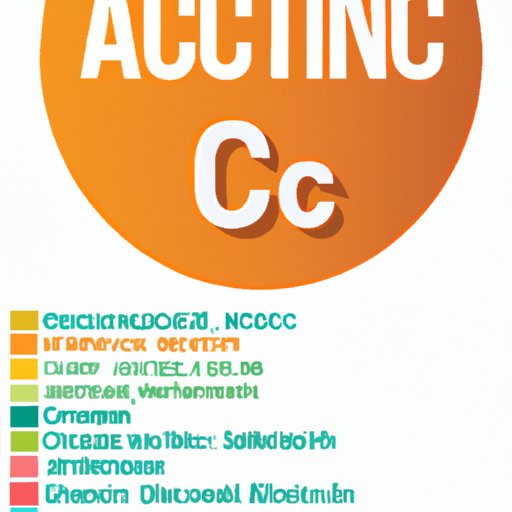Introduction
Vitamin C ascorbic acid is a water-soluble vitamin found naturally in some foods. It is an essential nutrient that plays an important role in maintaining good health and preventing disease. Vitamin C ascorbic acid helps to boost the immune system, protect against free radicals, and promote healthy skin and bones. In this article, we will explore the benefits of vitamin C ascorbic acid, examine its impact on your skin, and discuss what you need to know about vitamin C ascorbic acid dosage.

Exploring the Benefits of Vitamin C Ascorbic Acid
Vitamin C ascorbic acid is an essential nutrient that has many health benefits. It boosts the immune system, which helps to fight off infections and prevent common illnesses such as colds and flu. Vitamin C ascorbic acid also helps to protect against damage from free radicals, which can lead to chronic diseases such as cancer and heart disease. Additionally, vitamin C ascorbic acid helps to promote healthy skin and bones, and may even reduce the risk of age-related eye diseases.
Examining the Impact of Vitamin C Ascorbic Acid on Your Skin
Vitamin C ascorbic acid can help to improve skin health in several ways. It helps to stimulate collagen production, which keeps skin looking youthful and helps to reduce wrinkles. Vitamin C ascorbic acid also helps to protect against UV damage, which can lead to sunburns and premature aging. Additionally, vitamin C ascorbic acid can help to lighten dark spots and other discolorations, and may even help to reduce acne breakouts.
Vitamin C ascorbic acid is available in many different forms, including tablets, capsules, powders, and topical creams. For best results, it is important to choose a form that is easily absorbed by the body. Powdered forms of vitamin C ascorbic acid are often the most effective, as they are quickly absorbed into the bloodstream and can be taken in higher doses.

What You Need to Know About Vitamin C Ascorbic Acid Dosage
The recommended daily allowance (RDA) for vitamin C ascorbic acid is 75-90 mg per day for adults. However, higher doses may be necessary for certain conditions, such as if you are pregnant or have a weakened immune system. If you are taking supplements, it’s important to follow the instructions on the label and not exceed the recommended dose.
Although vitamin C ascorbic acid is generally safe and well tolerated, it can cause side effects in some people. These include nausea, diarrhea, and stomach cramps. It can also interact with certain medications, so it’s important to speak to your doctor before taking vitamin C ascorbic acid supplements.
Conclusion
Vitamin C ascorbic acid is an essential nutrient that has many health benefits, including boosting the immune system and protecting against free radicals. It can also help to improve skin health, by stimulating collagen production and protecting against UV damage. When taking supplements, it’s important to follow the instructions on the label and not exceed the recommended dose. Speak to your doctor before taking supplements if you have any concerns.


